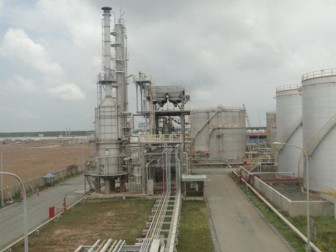 By Adam Kerlin
By Adam Kerlin
NEW YORK (Reuters) – Crude oil ended higher on Thursday, recovering from a steep plunge in the previous session, but gains were only modest as trepidation over Europe’s economy and looming negotiations over the U.S. “fiscal cliff” weighed on the market.
Crude oil’s rebound came after Brent futures dropped nearly 4 percent and U.S. crude slumped almost 5 percent on Wednesday as problems facing European and U.S. economies applied pressure, along with data showing rising oil stockpiles in the United States.
Traders said crude oil and gold got late-day pushes from possible geopolitical tensions coming out of the Middle East after the Pentagon said Iran attempted to strike an unmanned U.S. drone over the Arabian Gulf last week.
Wall Street eased lower despite the release of positive economic data, as investors prepare for heated negotiations in Washington to avoid the “fiscal cliff” in January.
“The fears about Europe’s economy remain and we still are worrying about the ‘fiscal cliff’ facing the United States,” said Phil Flynn, analyst at Price Futures Group.
After U.S. President Barack Obama won a second term on Tuesday, anticipation is high that Democrats and Republicans will move quickly to avert the $600 billion package of automatic spending cuts and tax increases that could crush the U.S. economic recovery.
Weakness in the U.S. economy at a time China is struggling to improve its growth rate and Europe is grappling with its debt crisis would diminish the global economic recovery even further.
Stock indexes posted their largest drops in months on Wednesday.
Flynn also said a snowstorm that slammed the U.S. Northeast overnight could compound the expected hit to demand for oil in the United States after Hurricane Sandy last week.
Brent December crude rose 43 cents to close at $107.25 a barrel, having swung from $106.12 to $108.17.
U.S. December crude closed 65 cents higher at $85.09 a barrel, after trading between $84.22 and $85.70.
U.S. RBOB gasoline ended higher and heating oil slightly lower after a volatile day of trading buffeted by the gyrations of crude futures.
Crude oil inventories rose 1.77 million barrels last week, the U.S. Energy Information Administration’s (EIA) weekly report on Wednesday showed, in line with expectations in a Reuters survey of analysts.
Gasoline and total distillate stocks also increased, against expectations supply would be down.
EUROPE
Europe’s crisis moved back into the spotlight after European Central Bank Chairman Mario Draghi said the euro zone economy would remain weak in the near term, even as he hinted at unlimited intervention in the region’s sovereign markets.
The euro fell to a two-month low against the dollar on Thursday after the ECB announcement. The move makes crude priced in dollars more expensive for holders of other currencies.
The ECB held its main interest rate at 0.75 percent on Thursday, deferring any cut in borrowing costs while it assesses the extent of the euro zone’s economic downturn and waits for a cue to use its new bond-purchase program.
Investors will also be monitoring the once-in-a-decade leadership change in China, the world’s No. 2 energy consumer, as President Hu Jintao hands over power to his successor, Xi Jinping, though there are no real concerns about policy changes. (Additional reporting by Robert Gibbons in New York, Peg Mackey in London and Ramya Venugopal in Singapore; Editing by Alden Bentley and Marguerita Choy)
Source: Reuters




























